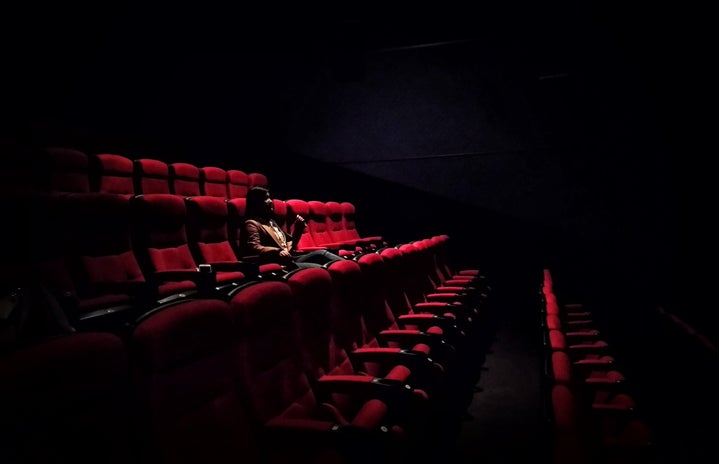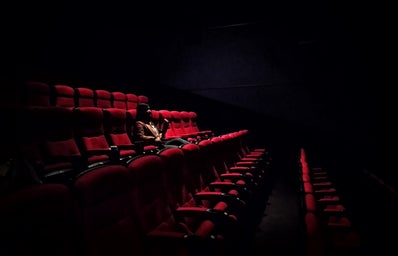“The Sound of Silence” tells Ruben’s story, a heavy metal drummer who, as time goes by, loses his hearing. You can imagine the hard time he goes through: re has to rediscover his relationship with the music and also his connection with his girlfriend Lou, vocalist of his band. From the story’s very beginning, it is clear that the two of them are passionate about the world of rock music.
They live in a trailer – which is full of posters, recording equipment, etc – and depend on the earnings of shows they do in different cities. With a very disordered life, they have lunch in restaurants close to concert halls and spend weeks on the road from one place to another. If we think about it, this shows how the new generations are less sympathizing with the way of life of older people, full of routine and seriousness. Rock’s motto, “live intensely”, is very much alive in Ruben’s life, who also shows a lot of energy and passion when playing drums.
A life reflection
The plot twist when the film becomes agonizing is when Ruben starts to go deaf. The “whistles” and metal noises that the protagonist perceive are transmitted to us throughout most of the movie. Ruben’s gradual loss of hearing leaves us troubled, as if we were in his own skin. This leaves an interesting reflection for me: how us human beings find it difficult to let go of things. Be it a relationship, a loved one or our own hearing. Things we sometimes take for granted and may leave unrepairable marks.
Although the loss is very difficult (and the film makes this clear), we follow Ruben’s reconstruction and healing process. First, he starts selling his objects and trailer, so that he can afford a surgery that would make him listen better through implants. The hope of getting his life back really cheered him up for a while. But after the surgery, when he performs hearing tests with a doctor, Ruben realizes that he did not listen as well as before. Politely, the doctor replies:
“This may not be sound like you remember. In reality, your ears aren’t working still. I would suggest that you take it easy and just get adjusted to how things are now. Take your time.”
It is a medical situation, but that could be a life lesson for us, huh? To deal with our sufferings and losses, one of the best remedies is time. With time passing, we get used to and adapt to a situation. Not just with hearing loss, in Ruben’s case, but for any other challenge life imposes on us.

Hearing loss and the society’s difficulties
When seeking professional help, Ruben isolates himself in kind of a nursing home for the deaf, whose purpose is, as its owner says, to take care of the mind and not the deafness. At first, he retreats, but then, after a few weeks, he feels part of that group and ends up giving in. Thus, “as homework”, the leader of the support home sends him to a children’s school to learn sign language. It’s amazing how Ruben, from then on, feels so much better by realizing that he’s not the only one with that disability. He ends up creating a great relationship with his teacher and other students.
In life, in order to make people comfortable to deal with this circumstance in a calm and welcoming way, it is important that society revisits its social inclusion norms. In this way, the movie also addresses the difficulty that deaf and hearing impaired people have in a society that’s not prepared for this: when Ruben loses almost all of his hearing (before performing the surgery), his girlfriend and family didn’t even know how to deal with the situation. They were totally lost, communicating with him through written notes until he sought professional help.
This makes me think about how society needs bigger preparation for hearing impaired people, such as encouraging people to get sign language education, making schools, public services, movies, and even traffic signs more inclusive. After all, feeling welcomed and represented is very important for one’s self esteem and mental health.
———————————————————————————————————————————————————-
The article above was edited by Giulia Gianolla
Liked this type of content? Check Her Campus Casper Libero home page for more!


